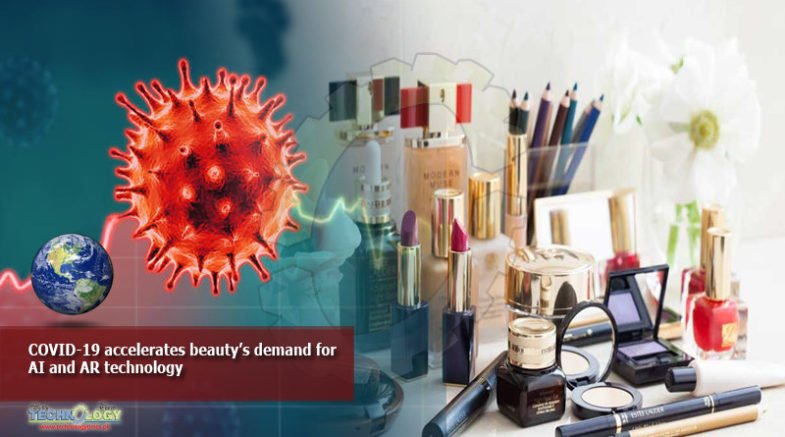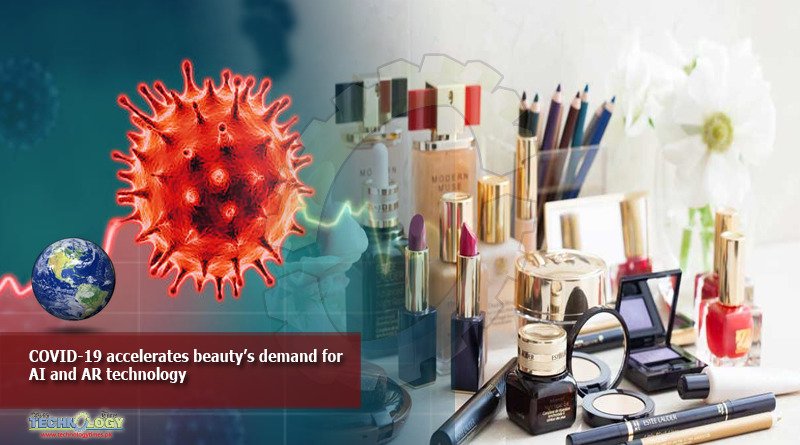When beauty companies began investing heavily in AI and AR try-on tools two years ago, they may not have anticipated that these technologies would become one of the only ways their customers could test products. But that is where they are at today, due to the mass shutdown of retail.

ModiFace, Glamst and Perfect Corp had generated strong interest from the world’s top beauty brands long before the COVID-19 outbreak: L’Oréal acquired ModiFace in March 2018 and Ulta acquired Glamst in November 2018. Since then, the race has been on to develop features that would ultimately increase conversions. For brands, offering omnichannel technologies during coronavirus is now being prioritized more than ever. And ultimately, these tools could lead to more lasting consumer behavior changes, especially as shoppers become more concerned about hygiene and health.
Thanks to quarantines and store closures, “beauty brands — along with the rest of the world — are being challenged to think digital and adopt virtual solutions quickly,” said Alice Chang, founder and CEO of Perfect Corp, which operates the YouCam beauty app, in an email statement. “With social distancing limiting physical world interactions, we are seeing increased interest in AI consultations and AR virtual try-on. Consumers are looking for digital solutions, and we expect more and more brands will be turning to digital-first strategies in the days and weeks to come.” Brands currently offering try-ons directly in the YouCam app include YSL Beauty and Pixi Beauty.
With companies reliant on e-commerce for their sales for the foreseeable future, try-on apps that drive to commerce can be one way to pursue conversions originally generated in-store.
“A direct link to e-commerce is an integral part of a cohesive digital experience,” said Chang, who noted that YouCam offers links to purchase from the YouCam Beauty Advisor 1-on-1 video consultations, as well as a one-click purchase feature through try-ons in the app. According to Perfect Corp, even before the COVID-19 pandemic, the addition of virtual try-on technology generated 2.5 times higher e-commerce conversions for brands.
Many brands still see a vital role in IRL salespeople to effectively drive conversions in step with AI and AR technologies. Perfect Corp launched an AR training service on March 9 to provide brands with livestream training for their beauty advisers, who work through its live chat tool. Estée Lauder and Nars previously adopted Perfect Corp’s technology for in-store use to link associates’ recommendations to AR try-ons.
The demand for human interaction has also increased retailers’ interest in live chat apps like Hero, which powers Credo’s virtual consulting program that connects online shoppers to store associates. (Fashion clients include Rag & Bone and Nike.) The company’s co-founder, Adam Levene, said that it has seen a 500% increase in inbound brand requests as a result of COVID-19. Consumers are using the app more, as well, with a 29% year-on-year increase in Hero chats in the U.S. and a 21% increase in Europe between March 1 and 13. Conversions, meanwhile, were up 42% during the same time period.
“Customers want that human connection,” said Levene, who said the app increases conversions because the “guidance” provided by store associates in live chats gives shoppers “the confidence to buy, which can only come from someone who is in the know.” close dialogSign up for the Glossy Beauty & Wellness BriefingTop trends and insider insights in your inbox every weekBusiness EmailJob TitleSIGN UPI’d also like Glossy’s daily top stories newsletter
Increased use of omnichannel apps could remain as a long-term trend after the COVID-19 outbreak.
“Digital is here to stay,” said Chang. “Long before the current global health pandemic shocked the world into a digital-first mentality, digital strategies were recognized as essential building blocks for a successful omnichannel business approach. As human behavior continues to evolve, virtual experiences, both in beauty and across other categories, will continue to become the norm.”
Courtesy: glossy.co
